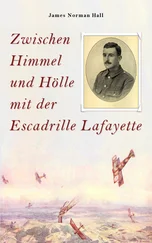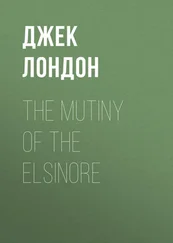Into my new house I moved at once, with Hitihiti, his daughter, her husband, and the people of their household who had accompanied them from Matavai. Early in the morning my party and I set out for Vehiatua’s house, carrying with us numerous gifts. These were termed the o—which is to say, with truly extraordinary brevity, “insurance of welcome.” When these presents had been formally received, both families joined in a slow and stately parade to my house, while servants in the rear brought the bride’s gifts—livestock, cloth, mats, furniture, and other things which would be useful to the new household. A throng of Vehiatua’s subjects lined the path, and a band of strolling players caused constant laughter with their antics and songs.
In the house, Hina, who represented the female side of my “family,” spread a large new mat, and on it a sheet of new white cloth. Vehiatua was a widower, and his older sister, a thin, white-haired old lady, straight and active as a girl, acted for his clan. Her name was Tetuanui, and she now spread upon Hina’s cloth, half overlapping it, a snow-white sheet of her own. This symbolized the union of the two families, and Tehani and I were at once ordered to seat ourselves on the cloth, side by side. To the right and left of us were arrayed a great quantity of gifts—mats, capes, and wreaths of bright featherwork. We were then enjoined to accept these gifts in formal phrases, and when we had done so Hina and Tetuanui called for their paoniho. Every Indian woman was provided with one of these barbarous little implements—a short stick of polished wood, set with a shark’s tooth keen as any razor. They were used to gash the head, causing the blood to flow down copiously over the face, on occasions of mourning and of rejoicing. While the spectators gazed at them in admiration, the two ladies now did us the honour of cutting their heads till they bled in a manner which made me long to protest. Taomi, the priest, took them by the hands and led them around and around us, so that the blood dripped and mingled on the sheet on which we sat. We were then directed to rise, and the sheet, stained with the mingled blood of the two families, was carefully folded up and preserved.
Vehiatua had dispatched to the mountains, the night before, a brace of his piimato, or climbers of cliffs. The office of these men was hereditary, and every chief kept one or two of them to fetch the skulls of his ancestors when required for some religious ceremony, and to return them afterwards to the secret caves, high up on the cliffs, where they were kept secure from desecration by hostile hands. The piimato carried in each hand a short pointed stick of ironwood, and with the aid of these they climbed up and down vertical walls of rock to which a lizard could scarcely cling. The skulls of Vehiatua’s ancestors were to be witnesses of the religious ceremony presently to take place.
When the ceremony of the bride’s reception in my house was over, we paraded slowly back to the house of Vehiatua, and went through a precisely similar ceremony there, even to the bloodletting and the folded sheets. This marked my reception into the house of Tehani’s family. We next sat down to a feast, the men apart from the women, which lasted till mid-afternoon.
The social part of the marriage was now over; the religious remained. It was performed in Vehiatua’s family marae, or temple, on the point not far from his house. Old Taomi, the priest, led the solemn procession. The temple was a walled enclosure, shaded by huge banyan trees and paved with flat stones. Along one side a pyramid thirty yards long and twenty wide rose in four steps to a height of about forty feet, and on top of it I perceived the effigy of a bird, curiously carved in wood. Accompanied by Hitihiti and his daughter, I was led to one corner of the enclosure, while Tehani, with Vehiatua and other relatives, took her place opposite me. The old priest then approached me solemnly and asked:—
“You desire to take this woman for your wife; will not your affection for her cool?”
“No,” I replied.
Taomi next walked slowly across to where my young bride awaited him, and put the same question to her, and when she answered, “No,” he made a sign to the others, who advanced from their respective corners of the marae and unfolded the two sheets of white cloth, on which the blood of the two families was mingled. Other priests now came forward, bearing very reverently the skulls of Vehiatua’s ancestors, some of them so old that they seemed ready to crumble at a touch. These silent witnesses to the ceremony were placed carefully in a line on the pavement, so that their sightless eyes might behold the marriage of their remote descendant.
The girl and I were told to seat ourselves on the bloodstained sheets of cloth, hand in hand, while our relatives grouped themselves on either side. The priest then called upon the mighty chiefs and warriors whose skulls stood before us, giving each man his full name and resounding titles, and calling upon him to witness and to bless the union of Tehani with the white man from beyond the sea. When this was done, old Taomi turned to me.
“This woman will soon be your wife,” he said seriously. “Remember that she is a woman, and weak. A commoner may strike his wife in anger, but not a chief. Be kind to her, be considerate of her.” He paused, gazing down at me, and then addressed Tehani: “This man will soon be your husband. Bridle your tongue in anger; be patient; be thoughtful of his welfare. If he falls ill, care for him; if he is wounded in battle, heal his wounds. Love is the food of marriage; let not yours starve.” He paused again and concluded, addressing us both: “E maitai ia mai te mea ra e e na reira orua!” This set phrase might be translated: “It will be well, if thus it be with you two!”
The solemnity of old Taomi’s words and manner impressed the girl beside me so deeply that her hand trembled in mine, and, turning my head, I saw that there were tears in her eyes. In the dead silence following his words of admonition, the priest began a long prayer to Taaroa, the god of the Vehiatua clan, beseeching him to bless our union and to keep us in bonds of mutual affection. At last he finished, paused, and then called suddenly: “Bring the tapoi!”
A neophyte came running from the rear of the temple, carrying a great sheet of the sacred brown cloth made by men. The priest seized it, spread it wide, and flung it over us, covering Tehani and me completely. Next moment it was flung aside and we were told to rise. The marriage was over, and we were now embraced in the Indian fashion by the members of both clans. Of the days of feasting and merrymaking that followed our wedding there is no need to speak.
Table of Contents
It means little to say that I was happy with Tehani. It may mean more to state that only two women have left their mark on my life—my mother and the Indian girl. Long before the birth of our daughter I had resigned myself to the prospect of a life of tranquil happiness in Tautira; the sense of my immense remoteness from England grew stronger with the passage of time, and the hope that a ship might come faded into the background of my thoughts. Had it not been for my mother, who alone seemed to lend reality to memories of England, I am by no means certain that the arrival of a ship would have been welcome to me. And since I felt assured that neither Bligh nor any of those with him in the launch would ever reach home, I knew that my mother would be in no distress on my account until it became evident that the Bounty was long overdue. Adopting old Hitihiti’s tropical philosophy, I put the past and the future out of mind, and for eighteen months—the happiest period of my entire life—I enjoyed each day to the full.
Читать дальше











